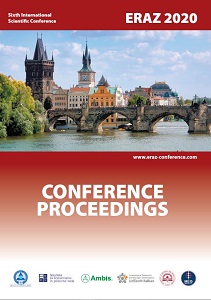THE ROLE OF INFORMATION AND COGNITIVE DOMAINS IN EMERGENCIES
THE ROLE OF INFORMATION AND COGNITIVE DOMAINS IN EMERGENCIES
Author(s): Rusi Marinov
Subject(s): ICT Information and Communications Technologies
Published by: Udruženje ekonomista i menadžera Balkana
Keywords: Information domain; Cognitive computing; Emergency planning; Crisis communications; Knowledge transfer; Machine learning; Infodemics.
Summary/Abstract: This report discusses the role of information domain and cognitive technologies in emergency management in the context of the global pandemic problems, which is also caused by a lack of leader’s capacity, knowledge transfer, lack of major investments in the security and health systems. Global emergency response plans should be based on the “artificial” reality of our planetary condition and used as a starting point for planning. Innovative companies are trying to take advantage of cognitive technologies to automate processes to solve a wide range of problems that require specific knowledge. The main aspects of knowledge are related to the so-called „P” categories (Perceive, Perception, Predict) of our critical environment and data input to such systems coming from sensors and smart elements. The new model for effective reactions in crisis refers to cognitive technologies, which, if available use an aesthetic language, generate unstructured texts, process information, used sensors for data in real-time, reading signals, access to “smart objects” and other algorithmic approaches for searching of solutions in extreme situations. The cognitive technologies used during contingency planning is oriented towards the further development of AI in order to improve the performance of machines in terms of intuition, sensitivity, emotions, and other factors that enhance the planning and decision-making tasks.
Book: ERAZ 2020 / 6 - Knowledge-Based Sustainable Development - CONFERENCE PROCEEDINGS
- Page Range: 259-269
- Page Count: 11
- Publication Year: 2020
- Language: English
- Content File-PDF

